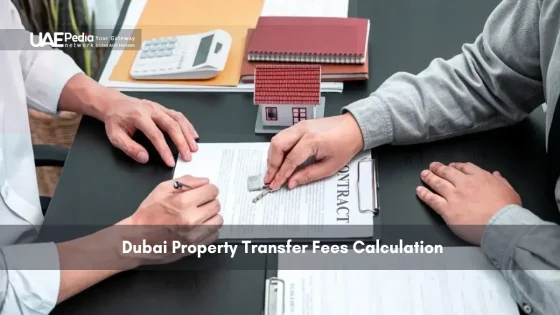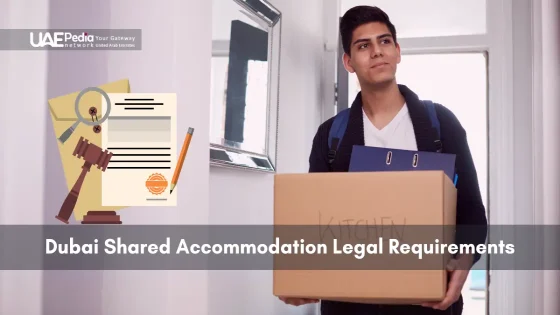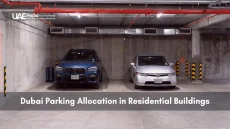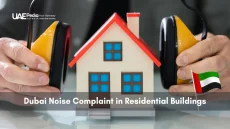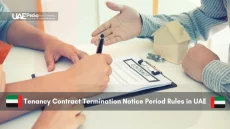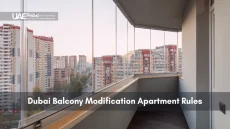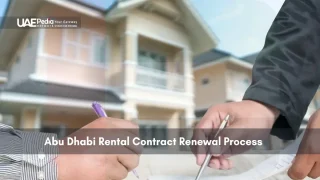Did you know over 80% of renters in Dubai’s dynamic market aren’t fully aware of the legal safeguards available to them? While skyscrapers glitter and neighborhoods evolve, a framework like Law No. 26 of 2007 – updated through Law No. 33 of 2008 – quietly ensures fairness for those leasing homes. Whether you’re eyeing a sunlit apartment in JLT or a villa near Al Barsha, understanding these rules transforms you from passive occupant to empowered resident.
Think of your tenancy contract as more than paperwork – it’s your shield against unexpected disputes. The Ejari registration system acts as your backstage pass, turning informal agreements into legally binding commitments. From maintenance responsibilities to rent increase limits, these regulations create clear boundaries that benefit both parties.
We’ll unpack everything from decoding contract clauses to navigating renewal negotiations. Here’s what you’ll gain:
- Clarity on how Dubai’s rental laws prioritize fair treatment and stability
- Actionable steps to validate your lease through official channels
- Strategies to address common issues before they escalate
Dubai Rental Landscape: An Overview
Dubai’s skyline tells a story of constant reinvention – glass towers sprouting beside sandy suburbs, waterfront communities blooming where dunes once ruled. This ever-changing horizon mirrors a real estate market where 65% of residents lease their homes. You’ll find everything from gold-trimmed penthouses to family-friendly townhouses, each reflecting the city’s dual identity as playground and practical hub.
Current Market Trends
Recent reports show average rents climbed 19% in prime areas last year. Yet suburban zones like Jumeirah Village Circle saw more stable rates. Three factors shape this seesaw effect:
- New property launches creating fresh inventory
- Shifting corporate relocation patterns
- Updated regulations capping annual increases
Common Rental Challenges
Even in this glittering market, friction points exist. Maintenance delays top tenant grievances, while owners often cite delayed payments. A recent survey revealed:
| Issue | Frequency | Resolution Time |
|---|---|---|
| Deposit Disputes | 32% of cases | 45 days avg. |
| Unauthorized Modifications | 18% of cases | 28 days avg. |
| Payment Delays | 27% of cases | 60 days avg. |
Smart documentation through the Ejari system helps prevent 80% of common disagreements. As one broker told us: “Treat your lease like a roadmap – the clearer the directions, smoother the journey.”
Understanding tenant rights dubai rental law
Imagine moving into your new home only to find the AC broken in July – what happens next? Local tenancy laws ensure you’re not left sweating. Article 16 of the Real Estate Regulatory Agency (RERA) guidelines states property owners must handle structural repairs, while those leasing cover minor fixes like lightbulbs.
Your contract becomes armor once registered through Ejari – the government’s digital shield against verbal promises. One resident shared: “When my landlord tried changing terms mid-lease, Ejari records settled it faster than a desert sunset.” This system locks in critical details:
- Maximum annual rent increases (capped at 5-20% based on area averages)
- 90-day notice periods for contract changes
- Access to RDSC mediation if disagreements arise
Peaceful living isn’t just a phrase here. Article 25 forbids owners from entering without 24-hour notice – unless there’s a burst pipe emergency. Maintenance timelines? They’re legally bound too. A property manager once told me, “We treat repair requests like hospital triage – leaking roofs jump the queue.”
Pro tip: Snap dated photos during move-in. When disputes surface, RERA agents often request visual proof alongside your Ejari paperwork. It’s like having a legal selfie stick!
Key Components of a Dubai Tenancy Contract
Your lease agreement isn’t just paperwork—it’s your personal rulebook for hassle-free living. Let’s crack open this document like a fresh karak chai, steaming with essential details you can’t afford to miss.
Essential Contract Clauses
Think of these clauses as your home’s DNA—unique identifiers that prevent identity crises later. A robust agreement always includes:
| Clause | Details | Importance |
|---|---|---|
| Property Blueprint | Exact unit number, community, and amenities | Prevents bait-and-switch scenarios |
| Payment Terms | Amount, due dates, accepted currencies | Eliminates payment guesswork |
| Maintenance Matrix | Who fixes AC units vs. lightbulbs | Reduces “whose job is this?” debates |
| Access Rules | 24-hour notice periods for visits | Protects personal space |
Ejari Registration Process
This digital seal transforms your handshake deal into ironclad reality. Here’s how it works:
- Submit scanned documents online: passport, contract, property title
- Pay AED 215 fee through the Dubai REST app
- Receive registration certificate within 48 hours
One property consultant shared: “Ejari is like your relationship’s prenup—awkward to discuss, but saves headaches later.”
Always compare your signed copy against the Ejari portal version. Missing clauses? Red flags! Peace of mind comes stamped with that golden registration number.
Role of RERA in Tenant and Landlord Relations
Did you know that behind every smooth rental experience in Dubai lies a silent guardian? The Real Estate Regulatory Agency (RERA) operates like a skilled conductor, ensuring harmony between those leasing properties and those owning them. Established in 2007, this authority keeps the market’s rhythm steady through clear rules and quick conflict resolution.
Regulatory Oversight and Enforcement
RERA’s playbook includes three core moves. First, it validates all agreements through the Ejari system—think of this as quality control for contracts. Second, it calculators annual rent caps using area-specific data, preventing sudden price shocks. Third, its dispute team resolves 73% of cases within 30 days, according to 2023 reports.
Here’s how they balance the scales:
| RERA Function | Impact | Example |
|---|---|---|
| Rent Increase Checks | Limits hikes to 5-20% based on location | Jumeirah Lakes Towers: 7% cap in 2024 |
| Contract Audits | Flags 89% of non-compliant clauses pre-registration | Required 12-point font size for terms |
| Violation Penalties | AED 50,000 fines for wrongful evictions | 2023 case: Al Barsha villa dispute |
A property owner shared: “RERA’s guidelines turned a heated argument into a fair solution within days.” The agency also runs workshops explaining maintenance timelines and entry protocols—because knowledge is the best peacekeeper.
“We don’t take sides—we take action based on signed papers and local laws,”
Their digital portal lets you check contract statuses or file concerns anytime. It’s like having a real estate guardian angel in your pocket.
Navigating Rental Disputes and Settlement Processes
When disagreements arise over your living space, it’s like sand in your shoes—annoying but solvable with the right approach. The Rental Dispute Settlement Centre (RDSC) serves as your compass here, resolving 85% of cases within 60 days through structured mediation.
How the RDSC Operates
This specialized hub functions like a three-act play. First, the Reconciliation Department brokers face-to-face solutions. If unresolved, the First Instance Department reviews evidence like a detective piecing together clues. Final appeals go to a dedicated panel—think of it as the “supreme court” for housing spats.
| Department | Role | Timeline |
|---|---|---|
| Reconciliation | Mediates informal agreements | 15 days avg. |
| First Instance | Issues binding rulings | 30 days avg. |
| Appeals | Reviews contested decisions | 45 days avg. |
Your Action Plan for Conflicts
Ready to file? Follow this road-tested process:
- Gather evidence: Contracts, payment receipts, photo timelines
- Submit through the Dubai Courts portal with Ejari number
- Attend mandatory reconciliation session
One RDSC advisor shared: “We’ve seen cases resolved during coffee breaks—coming prepared speeds things up.” Remember, claims expire after 180 days. Treat deadlines like sunrise desert hikes—start early to avoid the midday heat.
Pro tip: Use the official Smart Form for complaints. Its dropdown menus act like training wheels, ensuring you include every required detail without guesswork.
Legal Protections for Tenant Rights in Dubai
Your home should feel like a sanctuary—not a negotiation table. Local regulations create invisible guardrails ensuring your living space remains secure and functional. Let’s explore how these rules work behind the scenes to protect your stay.
The law guarantees undisturbed enjoyment of your residence. Property owners can’t show up unannounced—they must provide 24-hour written notice for visits. Even renovation plans require mutual agreement. As one legal advisor put it: “Your front door isn’t just wood and metal—it’s a legal boundary.”
Maintenance responsibilities are clearly mapped. Owners handle structural issues like plumbing leaks or electrical faults. You’re only responsible for minor fixes—think replacing lightbulbs or AC filters. A 2023 RERA report showed 92% of repair disputes get resolved within 14 days when proper channels are used.
Safeguards against sudden changes include:
- Utility cutoffs being illegal without 30-day warnings
- Eviction notices requiring 12-month advance notice via notarized letter
- Mandatory mediation before any court proceedings
“Documentation is your oxygen mask—breathe deep and keep copies.”
These frameworks transform uncertainty into clarity. By understanding your tenancy agreement’s backbone, you trade anxiety for agency. Remember: Official portals like Ejari turn vague promises into enforceable commitments—your peace of mind starts with a registered contract.
Conditions for Rent Increases and Notice Periods
Picture this: You’re sipping morning coffee when a rent hike notice arrives—what’s next? Here’s the deal: increases can’t happen like summer sandstorms. Decree No. 43 of 2013 sets clear guardrails. Landlords must wait until lease renewal time and follow RERA’s rent calculator like a recipe book.
Three conditions unlock a legal increase:
- Current rate sits 11-20% below area averages
- Proper 90-day notice via registered mail
- No pending maintenance disputes
That notice period isn’t a suggestion—it’s law. Miss the deadline? The increase evaporates faster than a desert mirage. One resident shared: “My landlord tried pushing a 15% hike with 60 days’ warning. RERA’s portal showed our area cap was 5%—case closed.”
| Market Comparison | Max Increase Allowed |
|---|---|
| 11-20% below average | 5% |
| 21-30% below | 10% |
| 31-40% below | 15% |
Smart move: Cross-check figures using RERA’s online tool. Input your unit size and community—it spits out legal limits in seconds. A 2023 Jumeirah Village Circle case saw rents frozen when calculations didn’t match official data.
Contracts must mirror these rules. Spot vague phrases like “subject to market rates”? Red flag! Always compare your lease against the latest RERA index before signing. As one agent advised: “Treat renewal negotiations like chess—know the board’s boundaries before making moves.”
Eviction Regulations and Tenant Safeguards
Imagine receiving a notice that your home might be taken away—what’s your next move? Local rules strictly limit why someone leasing out a place can ask you to leave. There are only three valid reasons: major renovations needing vacant premises, personal use by the owner’s immediate family, or plans to sell property through official channels.
Even these scenarios come with ironclad protections. Landlords must provide 12 months’ written notice via Notary Public—no last-minute surprises. A 2023 Al Quoz case saw a family stay put when their owner skipped this step. As one legal advisor noted: “The law treats your lease like armor—it can’t be pierced without proper paperwork.”
Common disputes often involve unclear renovation timelines. Recent amendments require owners to submit contractor bids and permits with eviction notices. This prevents fake renovation claims used to push people out. Other safeguards include:
- Banning mid-contract evictions except for non-payment
- Requiring mediation before court filings
- Freezing rent during unresolved cases
Peace of mind comes from knowing arbitrary removals are illegal. Document every communication and check notices against RERA’s public database. When in doubt? That twelve-month buffer gives you time to strategize—or find a new nest that truly feels like home.
Maintenance, Repairs, and Utility Responsibilities
Clear repair protocols transform chaotic “whose job is this?” moments into smooth solutions. Whether it’s a flickering light or a burst pipe, knowing who handles what keeps your living space humming like a well-oiled machine.
Dividing the Duties
Property owners carry the weight for structural issues and system overhauls. Think cracked walls, faulty wiring, or plumbing disasters. Those leasing spaces tackle day-to-day upkeep—like replacing air filters or unclogging drains. One property manager joked: “We fix the ship’s engine; you polish the deck.”
| Responsibility | Owner’s Duty | Occupant’s Duty |
|---|---|---|
| Structural Integrity | Foundation repairs, roof leaks | N/A |
| System Maintenance | AC compressor replacement | Filter cleaning |
| Utility Continuity | Ensure water/electricity access | Timely bill payments |
Legal guidelines forbid shutting off utilities as leverage—even during payment disputes. A 2023 case saw a landlord fined AED 8,000 for cutting power without notice. Always document repair requests through official channels. As one legal advisor noted: “Photos timestamped with coffee stains hold more weight than memory.”
Common friction points often involve appliance breakdowns. Washers acting up? Check your lease—some contracts specify shared repair costs. Pro tip: Schedule annual maintenance checks during lease renewals. It’s like giving your home a physical exam before marathon season.
Best Practices for Effective Tenant-Landlord Communication
Think of communication between residents and property owners as engine oil – without it, even the smoothest arrangements grind to a halt. Start every interaction like you’re texting a new friend: clear, polite, and solution-focused. One mediator shared: “The best leases I’ve seen include monthly check-in reminders in their calendars – prevention beats firefighting.”
Try these proven strategies:
| Method | Best For | Response Time |
|---|---|---|
| Email Chains | Repair requests & payment confirmations | 48-hour paper trail |
| Messaging Apps | Quick updates | Instant notifications |
| Scheduled Calls | Complex discussions | 15-min focused talks |
Documentation acts as your secret weapon. Snap photos of that leaking faucet before texting – visual evidence cuts confusion. Always follow verbal agreements with a brief summary message: “Just confirming we’ll handle AC servicing next Tuesday – thanks!”
When tensions bubble up:
- Use “we” statements: “How can we solve this together?”
- Reference contract clauses calmly
- Propose two solutions, inviting collaboration
“Nine out of ten disputes dissolve when both sides feel heard early.”
Pro tip: Set communication expectations during move-in. A 5-minute chat about preferred contact methods builds goodwill that lasts longer than that fresh paint smell.
Strategic Tips for Document Management and Dispute Prevention
Your paperwork is more than files—it’s a survival toolkit for urban living. Think of every receipt and photo as puzzle pieces that form a complete picture of your housing journey. A property consultant once told me: “Disorganized records are like sunscreen in a sandstorm—they’ll save you from getting burned later.”
Building Your Paper Trail
Start with these essentials in your digital vault:
- Signed agreements with timestamps
- Bank statements showing payment history
- Dated photos of walls, appliances, and fixtures
Cloud storage turns your phone into a portable evidence locker. One resident shared: “When my owner claimed wall damage, my move-in photos from six years ago settled it faster than falafel frying.” Follow this three-step maintenance routine:
- Scan new documents within 48 hours
- Label files by category and date (e.g., “2024-Repair-Req-AC”)
- Set quarterly reminders to update backups
| Essential Documents | Retention Period | Purpose |
|---|---|---|
| Lease Agreements | 3 years post-moveout | Terms verification |
| Maintenance Requests | 2 years | Responsibility proof |
| Payment Receipts | 18 months | Dispute resolution |
“Treat every notice like a museum artifact—preserve it perfectly.”
When conflicts arise, organized records become your compass. Settlement centers prioritize cases with timestamped evidence over vague claims. Pro tip: Use free apps to create PDF portfolios—they’re searchable, shareable, and court-ready.
Bringing It All Together: Ensuring a Smooth Rental Experience
Navigating the rental landscape becomes effortless when you pack these essentials: a rock-solid contract, proactive communication, and awareness of your protections. Think of RERA and the RDSC as your GPS—they reroute disputes toward fair resolutions while keeping agreements anchored in local regulations.
Your lease isn’t just ink on paper—it’s a living blueprint. Double-check clauses about maintenance duties and renewal terms. Landlords must honor notice periods for visits or changes, just as you’re expected to uphold payment timelines. One resident shared: “Organized records turned a potential eviction scare into a quick win.”
Here’s your action checklist:
- Store digital copies of agreements, receipts, and photos
- Bookmark RERA’s rent calculator for renewal seasons
- Schedule quarterly check-ins with property owners
Knowledge transforms uncertainty into confidence. Review your current contract this week—spot outdated clauses? Reach out. Many landlords appreciate collaborative updates that benefit both sides. Need backup? Legal advisors and community forums offer tailored guidance.
With the right tools and mindset, your home becomes more than walls and windows. It’s where preparation meets peace of mind. Ready to unlock that front-door serenity? Your journey starts now.
Increases depend on average market rates for similar properties. If your current rent is 11-20% below market, landlords can hike up to 5%. RERA’s online calculator gives exact caps—always check before accepting adjustments.
Owners can request vacant possession for personal use, major renovations (with permits), or property sales. They must provide 12 months’ written notice via notary/public memo—no last-minute surprises allowed.
Landlords cover structural systems like HVAC units per standard contracts. Tenants manage filter changes and minor upkeep. Document repair requests through Dubai REST or registered emails to avoid “he said/she said” scenarios.
A>Ejari registration is mandatory for legal protection. Unregistered leases won’t hold up at the Rental Dispute Centre. Sort this first—visit a typing center with your contract/emirates ID to get compliant fast.
File a case through RDSC’s app within 15 days of failed communication. Include photos/videos, repair quotes, and correspondence. Courts often order compensation or permit rent withholding until fixes occur.
Most straightforward issues resolve in 15-30 days. Complex cases involving property valuations or appeals might stretch 3-6 months. Mediation sessions often settle things faster—over 60% of conflicts end there.

